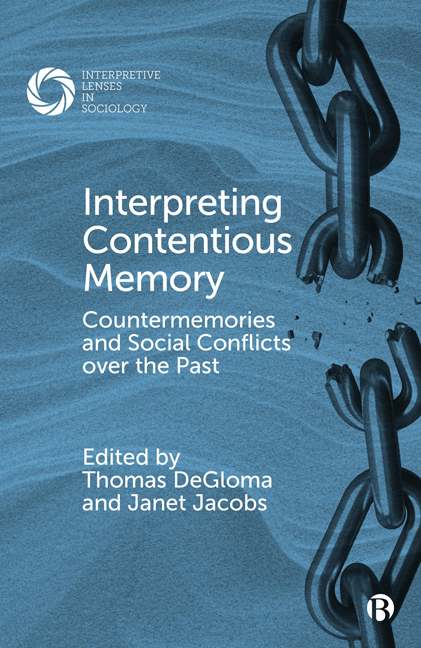Book contents
- Frontmatter
- Contents
- Series Editors’ Preface: Interpretive Lenses in Sociology – On the Multidimensional Foundations of Meaning in Social Life
- Notes on Contributors
- Acknowledgments
- 1 Introduction: Interpreting Contentious Memories and Conflicts over the Past
- PART I Interpreting Memories in the Social Dynamics of Contention
- PART II Racism, Exclusion, and Mnemonic Conflict
- PART III Genocide, Memory, and the Historicizing of Trauma
- Index
9 - Remembrance and Historicization: Transformation of Individual and Collective Memory Processes in the Federal Republic of Germany
Published online by Cambridge University Press: 20 January 2024
- Frontmatter
- Contents
- Series Editors’ Preface: Interpretive Lenses in Sociology – On the Multidimensional Foundations of Meaning in Social Life
- Notes on Contributors
- Acknowledgments
- 1 Introduction: Interpreting Contentious Memories and Conflicts over the Past
- PART I Interpreting Memories in the Social Dynamics of Contention
- PART II Racism, Exclusion, and Mnemonic Conflict
- PART III Genocide, Memory, and the Historicizing of Trauma
- Index
Summary
Introduction
The Holocaust, the war of extermination and other National Socialist mass crimes brought such extreme devastation upon the world as has never been seen before and have far exceeded the bounds of conventional modes of comprehension and interpretation at work within memory, critical reflection, and historical insight. They challenge us not only to understand historically how this could have happened, but they also force us to confront a disturbing reality, to confront the horror of what happened and the suffering of the victims and the witnesses. Overcoming the extreme traumatization of people and its consequences became an unavoidable task not only for the individual survivors and their reorganization of life and of how they dealt with their past, but also for the societies affected by it. Moreover, the monstrosity of the unprecedented crimes against humanity posed new challenges to various scientific disciplines, such as history and the social sciences, but also to psychoanalysis.
The historians Jörn Rüsen (2001), Saul Friedländer (1994), and some others vehemently argue for including the concept of trauma in the theory of history. The Holocaust is a “borderline experience of history” that refuses to be integrated into a coherent pattern of interpretation. With a “sense of its own, or rather a counter-sense, the Holocaust has inscribed itself into the patterns of interpretation and orientation of the present, before these were specifically conceived in the cultural practices of historical memory” (Rüsen, 2001: p 183). The way to this understanding of the Holocaust was paved by the results of trauma research, namely that the experience of trauma for the affected person as a “catastrophic challenge to the formation of meaning” (Rüsen, 2001: p 154) only comes into effect afterwards, which the traumatized person often has to work on for a lifetime. This also explains the paradoxical fact that today Auschwitz is much more central to historical consciousness than it was in past decades.
It was not only the events of the Holocaust that had to be understood in a historically appropriate way, but also the cultural practices of remembering, how German society became aware of the Holocaust and the criminal extermination policies of National Socialism over the decades.
- Type
- Chapter
- Information
- Interpreting Contentious MemoryCountermemories and Social Conflicts over the Past, pp. 177 - 196Publisher: Bristol University PressPrint publication year: 2023



